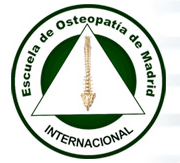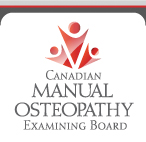Headaches are among the most common of human complaints, and frequent, recurring, or chronic headaches affect millions of people. Headaches are among the top ten conditions that are treated with naturopathic medicine. Naturopathic medicine, also called naturopathy, can relieve the root problems that cause headaches. The reflex therapies, dietary changes and other methods practiced by naturopaths treat the whole body, improving overall health—which can lessen the frequency of and even prevent headaches.
How Does Naturopathic Medicine Treat Headaches?
Although naturopathic medicine can treat most types of headaches, tension headaches and migraine headaches are the two types that most often require medical attention. The naturopathic physician will take a thorough medical and family history, collect information about the patient’s diet, perform a physical examination, and perhaps order laboratory tests. Naturopathic medicine treatment for headaches may include an examination of the bones, joints, muscles, and other tissues using x-rays, an MRI (magnetic resonance imaging), or a CT (computed tomography) scan to identify the source of the headache.
Depending on the suspected source or cause and type of headache, naturopathic treatment can utilize a variety of protocols including:
- Diet
- Nutritional supplements
- Herbal supplements
- Chiropractic adjustments and alignments
- Acupuncture or acupressure
- Stress-reduction techniques
Diet and nutrition are central to naturopathic medicine and poor nutrition can cause headaches. In addition, many headaches are caused by allergies to foods or food additives, environmental chemicals, or medications. Naturopathic medicine can identify these allergies and eliminate the offending agent. Naturopathic treatment for headaches includes detailed recommendations for nutrient intake, and reducing food additives and refined and processed foods.
Many headaches are also caused by dehydration. Naturopathic medicine evaluates fluid intake and exercise and lifestyle factors that can cause dehydration.
Typical naturopathic medicine treatment for headaches includes:
- Magnesium, vitamin B6, 5-hydroxytryptophan (5-HTP) can be used to relax muscles, boost metabolism and act as an antidepressant, respectively.
- Vitamin C or the bioflavonoid quercitin are used to reduce allergic responses
- Aspirin, acetaminophen, or willow-bark extract that has been standardized for salicin, a natural form of aspirin, can also treat headaches.
- Placing the feet in very hot water and applying ice to the head or back of the neck helps relieve muscular tension.
How Does Naturopathic Medicine Treat Tension Headaches?
Often brought on by stress or poor posture, tension-type headaches are caused by the tightening or contraction of the shoulder, neck, and scalp muscles. Relaxing these muscles relieves the blood vessel constriction that causes the pain. With naturopathic medicine, tension headaches are often diagnosed by applying pressure with the hand to trigger points on the neck muscles and identifying points that increase or relieve the pain.
Naturopathic medicine for tension headaches may include supplements and therapies. Fish-oil supplements contain omega-3 fatty acids that can reduce inflammation, while magnesium and calcium supplements promote muscle relaxation. Herbs such as bromelain and curcumin have anti-inflammatory properties, which can also reduce tension headaches. Massage and physical therapy can help relieve the tension that builds up from day to day and leads to tension headaches. A chiropractor can also perform an adjustment that would correct misalignment of the spine, thus also reducing the tension that causes headaches.
Naturopathic medicine includes stress-reduction techniques to relax tight muscles and relieve tension headaches, including:
- Stretching
- Hydrotherapy (water therapy) for relaxation
- Exercise
- Deep breathing
- Meditation
How Does Naturopathic Medicine Treat Migraine Headaches?
Migraines are severe recurrent headaches that are often accompanied by other symptoms such as visual disturbances or nausea. Although the underlying cause of migraine headaches is unknown, dilation of blood vessels in the head is the source of migraine pain.
A Naturopath can identify underlying conditions that can also trigger migraine headaches, including:
- Dehydration
- High blood pressure
- Vitamin deficiencies
- Gastrointestinal problems
- Musculoskeletal problems
Food allergies and/or sensitivities are very common in migraine sufferers and identification of food allergies and intolerances is central to naturopathic medicine. A Naturopath may recommend that a patient suffering from migraines avoid common triggers such as cheese, chocolate, beer, and wine. Food or beverages containing caffeine or aspartame (artificial sweeteners) can also cause migraines, as can some medications. A naturopathic physician can help patients create a nutritious dietary plan excluding allergens and foods that trigger migraines.
Common naturopathic treatments for migraine headaches include Magnesium, which is sometimes intravenously administered for migraine treatment; calcium; niacin and other B vitamins; and vitamin C. Supplementing your diet with these vitamins and minerals can not only help relieve migraine headaches, but is good for overall health.
Supplementing with herbal remedies can also be effective; some herbs used for migraine headaches include:
- Ginger or ginger extract
- Wobenzyme
- Feverfew
- Butterbur
Other therapies that can, when practiced on a regular basis, can reduce frequency or severity of migraine headaches, are those that relax the body and restore it to its natural balance, including:
- Chiropractic adjustments
- Acupuncture
- Homeopathy
- Hydrotherapy
- Electrical nerve stimulation
- Biofeedback therapy
- Relaxation training.
How Does Naturopathic Medicine Treat Hormone Headaches?
Fluctuating levels of estrogen and progesterone can cause headaches in women. Naturopathic medicine treats these headaches with diet and nutritional and herbal supplements to attempt to balance hormone levels throughout the menstrual cycle. Magnesium, calcium, and vitamin B6 supplements, which are recommended to treat regular and tension headaches, can be used in the treatment of this type of headache as well. In addition, herbal remedies for hormone headaches include Chaste tree berry, which is commonly used to treat symptoms of PMS; licorice root, which is said to have anti-inflammatory properties; and black cohosh, which is also used to treat symptoms of menopause like hot flashes.
What Is Naturopathic Medicine?
Naturopathic medicine is a holistic medicine that emphasizes disease prevention with a healthy diet and lifestyle. Naturopathic medicine utilizes numerous techniques and treatments including:
- Nutrition and lifestyle counseling
- Nutritional supplements
- Herbal or botanical medicines
- Musculoskeletal manipulations and physical therapy
- Acupuncture and other traditional Chinese medicine therapies
- Homeopathy
- Hydrotherapy
Naturopathic medicine is taught in four-year graduate-level schools that include basic science and medical curricula. Regulations governing the practice of naturopathic medicine vary from state to state. In some states and throughout Canada, naturopathic physicians are licensed after passing board examinations. Many naturopathic physicians are primary-care physicians. Others specialize in a particular type of treatment or medical conditions. Many naturopathic physicians work cooperatively with conventional medical practitioners, especially when prescription medications or hospitalizations are involved.
What Causes Headaches?
Headaches have numerous causes, most of which are not well understood. However, headaches most often result from tightness in the muscles and skeleton of the body, especially the neck.
Headache sufferers often have:
- Poor head and upper-back posture
- A sedentary lifestyle
- Tight neck muscles with restricted range of motion
- Muscles that overreact and are slow to relax
- Muscle pain and tenderness
Go to Content










 Master PCMH Criteria with Upcoming Webinars
Master PCMH Criteria with Upcoming Webinars







 The American Osteopathic Association (AOA) is the representative organization for the over 70,000 osteopathic physicians (DOs) and 18,000 osteopathic medical students in the United States. The organization promotes public health, encourages scientific research, serves as the primary certifying body...
The American Osteopathic Association (AOA) is the representative organization for the over 70,000 osteopathic physicians (DOs) and 18,000 osteopathic medical students in the United States. The organization promotes public health, encourages scientific research, serves as the primary certifying body...










 9:42
9:42
 Daniel Enriquez de Guevara
Daniel Enriquez de Guevara













.jpg)


















0 comentarios:
Publicar un comentario